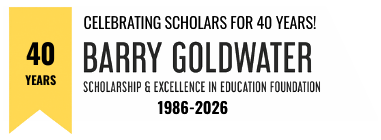Dylan Renaud | 2017 Goldwater Scholar
In 2017, I was a junior at the New Jersey Institute of Technology (NJIT), studying physics and math. Despite my relatively advanced standing, I was unsure about a myriad of things. Most importantly, I was unsure about my future and my place in scientific research. I had allocated a significant amount of time to research, but I remained unconvinced that it was something I should pursue as a career. This was, in part, due to a lack of confidence in my scientific ability.
I participated in my first research project the summer before I started college. Two NJIT physics professors, Dr. Gordon Thomas and Dr. Reginald Farrow, provided me with the opportunity to investigate the self-assembly dynamics of a nanoscale bio-fuel cell. Their explanations of the fundamental importance of science for solving real-world problems and exploring unanswered questions provided me with an electrifying vision of scientific research. I carried that vision with me over the next few years while working on topics ranging from hydrogen fuel cells to femtosecond spectroscopy. While these experiences led to conference presentations and publications, I continued to doubt myself.
At NJIT, I was fortunate to have staff and faculty advisors, such as the Goldwater representative Dr. John Carpinelli, who spurred me on to apply to competitive fellowship and grant opportunities. With their assistance, I prepared a competitive application and, in Spring 2017, I received notification of my status as a Goldwater Scholar. This recognition was a substantial encouragement. I believe questioning one’s abilities and continuing to address your weaknesses are necessary tasks – and I continue to strive to do so today. Nonetheless, being selected as a Goldwater Scholar was a critical event that deeply encouraged me to pursue science beyond my undergraduate years.
Over the year that followed, I was received countless opportunities to grow academically and professionally. These ranged from offers to give scientific talks, to obtaining research grants and graduate school acceptances. Today, I am a doctoral student in the School of Engineering and Applied Sciences (SEAS) at Harvard University, and I am supported by the Ford Foundation and NSF Graduate Research Fellowships. I am confident that being a recipient of the Goldwater Scholarship played a crucial role in establishing these events.

